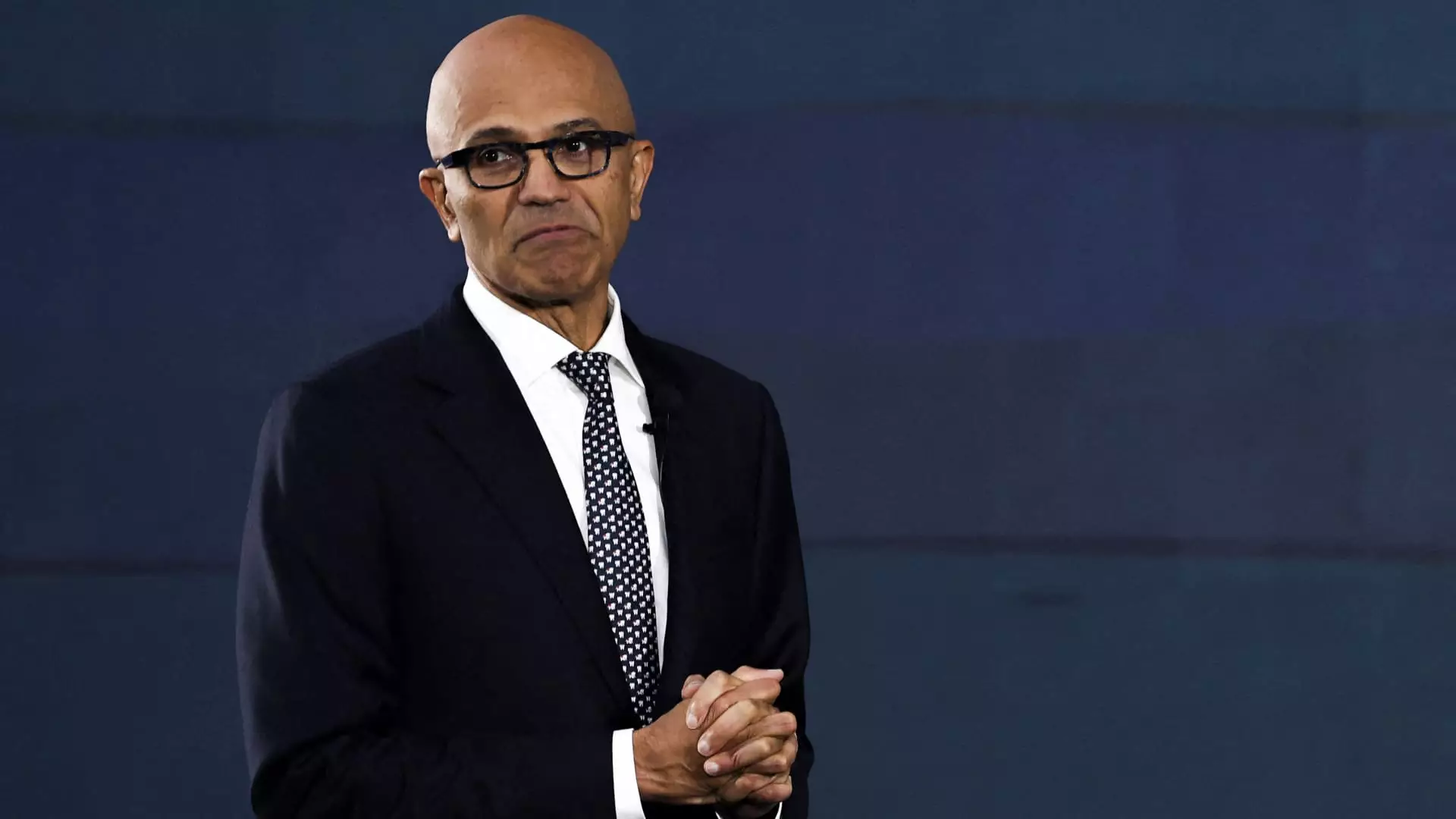As we observe the unpredictable fluctuations of Microsoft’s stock, particularly its horrifying potential eight-week losing streak, one can’t help but wonder if we are witnessing more than just a financial downturn; we’re observing a psychological battle within the market. The sharp 0.7% uptick just before the closing bell, which saved his week from a total meltdown, showcases the fragility of investor confidence in current economic indicators. While the close at $391.26 momentarily alleviated distress, the looming specter of a 7% dip year-to-date serves as a stark reminder: market confidence is not merely based on figures but heavily influenced by the collective psyche.
The Echoes of Financial History
The parallels drawn to 2008’s significant financial crisis are unnerving. Back then, Microsoft shares plummeted for nine consecutive weeks, much like the recent bleak performance we see today. Such recurrences provoke critical questioning: Are we heading toward another economic catastrophe, or can we distinguish this downturn as simply a market correction? While the latter offers a glimmer of hope, it’s crucial to remain vigilant. The market can be unforgiving; history shows it harbors the potential for compelling reversals in fortunes, often contradicting investor expectations overnight.
AI: Boon or Bane?
Amidst the chaos, Microsoft’s integral role in the burgeoning artificial intelligence sector remains a focal point. The company’s heavy investment in OpenAI, coupled with advancements in its Azure cloud infrastructure, positions it favorably in this new technology landscape. Yet, there lies a paradox: while these endeavors promise future growth, they also attract scrutiny. The rising competition from the likes of Amazon and Google—or even the latest player, security startup Wiz—suggests that the AI space is rapidly becoming a double-edged sword. Microsoft’s heavy reliance on this sector amplifies risks when faced with formidable adversaries.
The Tariff Threat
Additional pressures from the political landscape, particularly the ramifications of President Donald Trump’s tariffs, add layers of complexity. Businesses accustomed to a booming economy now wrestle with the repercussions of aggressive cost-cutting measures and the threat of recession. In this environment, tech giants like Microsoft are not insulated from economic fallout. Instead of the expected synergy from trade policies, we see are mounting fears that stifle growth and innovation.
Rethinking the Future
Investors must adopt a forward-thinking perspective rather than becoming entwined in momentary setbacks. Microsoft’s declining market cap, now approximately $2.9 trillion after a startling drop of around 16% since July 2024’s peak, beckons investment reassessment. This underperformance should incite a dialogue about the sustainability of its core offerings against a backdrop of an evolving marketplace. Believing the 21st-century economy is solely being built on AI could be limiting; after all, robust economic growth emerges from diverse innovations.
Ultimately, while Microsoft faces a challenging road ahead, a nuanced understanding of these dynamics could yield fresh opportunities, hinting that until the air settles, the discussion around this tech titan is far from over.

